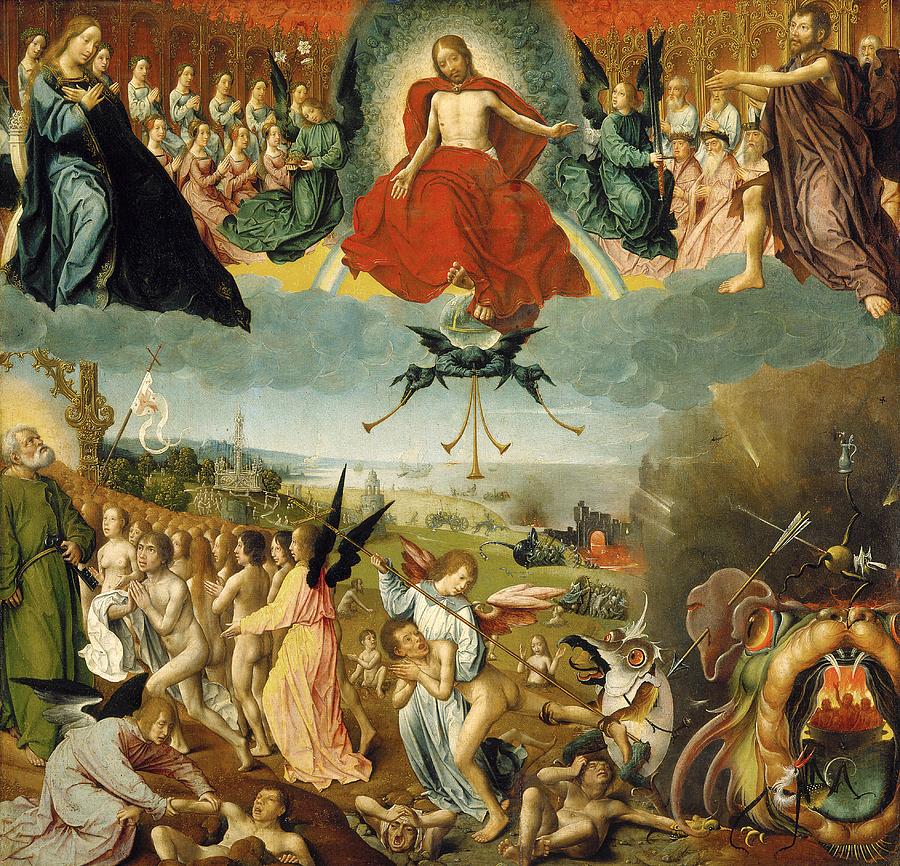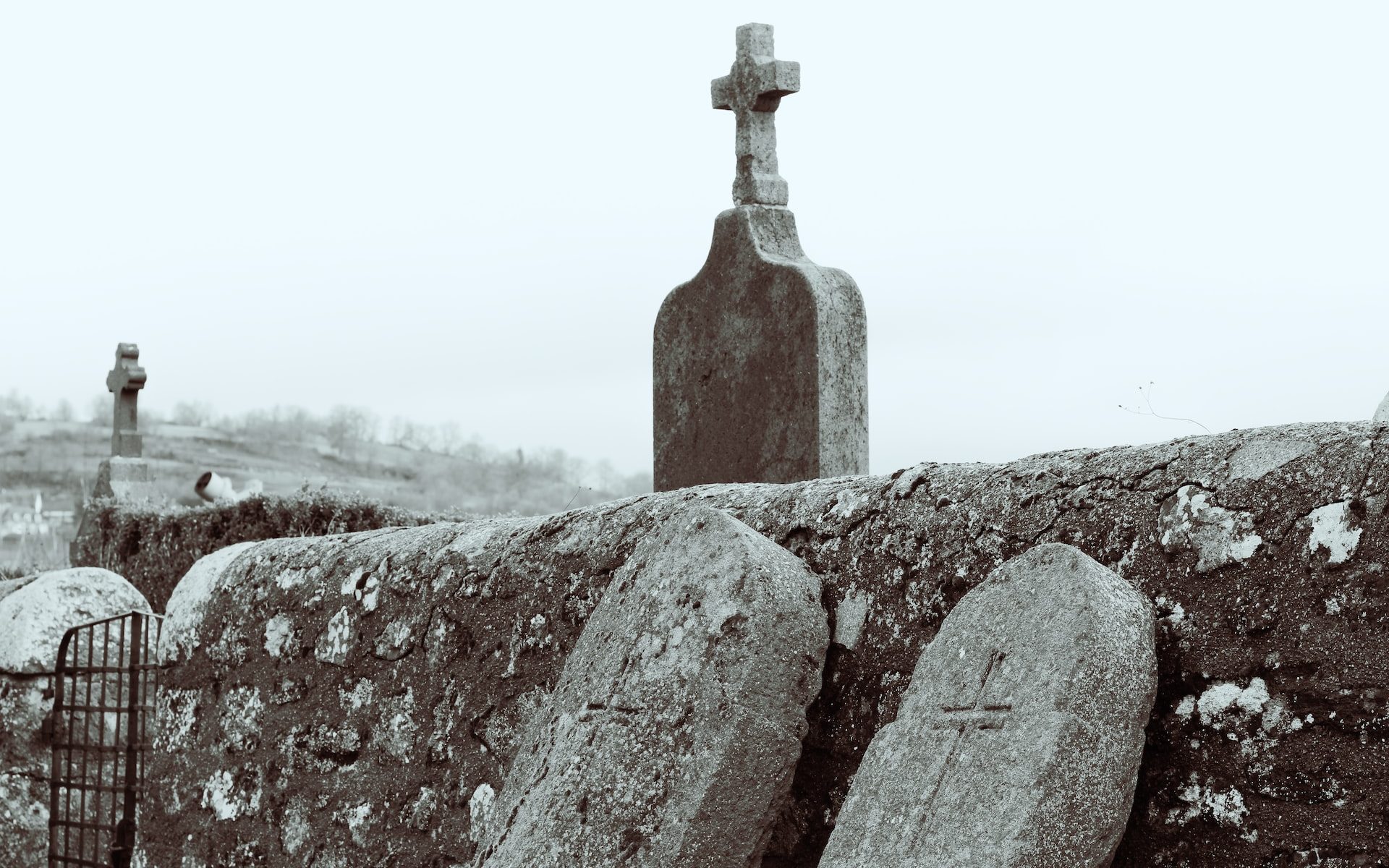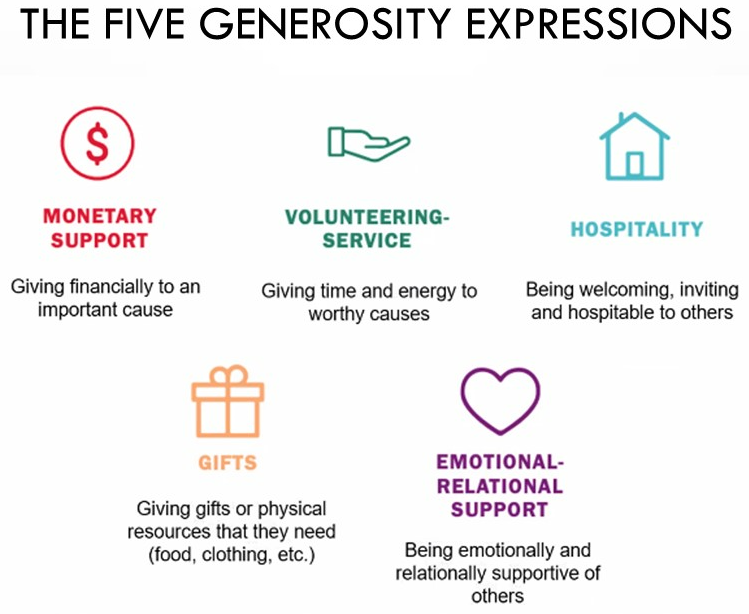Is God just? This question is bound to come up when considering what the Bible says about human destiny. After all, the Bible claims that those outside of Jesus will be punished in hell with no chance of change. While the exact scope and form of that punishment is not clear, there is no doubt that it is fearful, awful, and horrifying. How can God be just if he condemns people to hell? That’s a multi-layered question and here I will take a stab at one part of it: the difference between restorative and retributive justice.
At the outset, note that defining “justice” is notoriously difficult. I like to say that justice is “that state of affairs when perfect love of God and love of neighbor will no longer move our hearts to anger or sadness.” While a pretty idea, it is rather vague in practice. Further, most of the discussion about justice in our culture doesn’t give a hoot about theology. As we think about justice, here is a good touch point for how the concept of justice is commonly understood:
The most plausible candidate for a core definition [of justice] comes from the Institutes of Justinian, a codification of Roman Law from the sixth century AD, where justice is defined as ‘the constant and perpetual will to render to each his due’.
Stanford Encyclopedia of Philosophy
Justice as a moving target
To start making sense of how God can be just if he condemns people to hell, we do well to acknowledge that there is no agreed upon idea of what justice is. We have many different options for what we mean by justice today. When we try to make sense of God’s justice, we need to be careful. We can easily decide what justice ought to be and then blame God because he does not act like we tell him he should. It may be the case that our idea of justice is out of sync with God’s justice. Maybe our trouble with hell is due, in no small part, to God’s justice not making sense to us anymore.
We could call this relativity. A quick glance across societies from the past and present shows a wide variety of ideas regarding justice and judgment: do we chop a thief’s hand off, put them in jail, or make them pay restitution? Some people believe that justice demands each one of these judgments (and that the others are unjust). In practice, people tend to operate as though our idea of justice and judgment is both universal and obvious. In the US, we send criminals to jail because it is the just thing to do. Doesn’t everyone agree?
Recognizing that our idea of justice is neither universal nor self-evident is a good start. Knowing that there are different ideas of justice should caution us from absolutizing our current notions and demanding that God conform to them. To make sense of hell demands that we are willing to check some of our own assumptions about what must be right at the door.
God’s justice
To make sense of God’s justice, we need a proper frame of reference. A framework that does not simply assume the way we do things in the US in the 2020s (over which there is much debate in the US) is just. If we are to have any hope of making sense of the biblical teaching on hell, we have to realize that God and hell do not function according to the dictates of the US penal code. God’s justice is not dependent on the standards of behavior, payment, and consequences which our society decides are just at this point in time. God’s justice fits within the special relationship he has with all people as Creator and Covenant-Maker.
The biblical conception of God depicts him as one who is just or righteous, and who as such remains faithful to the demands of a relationship with human beings that is divinely established and constitutive of human well-being. God’s justice may be expressed in deeds that liberate the weak and vulnerable from bondage, as well as in judgment on the unfaithfulness of the people; yet both expressions reflect God’s role as Lord of a covenant relationship. Correspondingly, the justice of human activity is measured by its faithfulness to the covenanting God, who may be identified in creation and history, in the Law and the Prophets, and ultimately for Christians, in the story of Jesus Christ.
William Wepehowski, Dictionary of Christian Ethics, 330
In short, justice is whatever God does to set all things right (for more on the idea of justification and righteousness, see justification by faith and the courtroom). Justice is whatever puts things back into the pattern of how God created the world. And human activities are just insofar as they reflect the way God has ordered the world. Judgment and hell fit within God’s justice as the proper response to those who refuse to submit to God’s ways, who refuse to live in the divinely established ways of the world which ultimately lead to human well-being.
Justices observed: restorative and retributive
At this point, I find it beneficial to build upon two different notions of justice and judgment to help us see how judgment—including the judgment of hell—fits within God’s commitment to the world he created and to human well-being within that world. These ideas are restorative and retributive justice.
Restorative justice
In contemporary society, the idea of “restorative justice” is gaining more and more sway. Restorative Justice
is a response to wrongdoing that prioritizes repairing harm and recognizes that maintaining positive relationships with others is a core human need. It seeks to address the root causes of crime, even to the point of transforming unjust systems and structures.
“Three Core Elements of Restorative Justice“
Restorative justice finds justice in fixing and maintaining rather than punishing. The idea is to bring about a state of justice through releasing the tension, anger, fear, etc. which stands behind the act of violence in the first place. At issue here is the question, “What good can come out of the wrongdoing that happened?”
Restorative justice has been making inroads in areas like how discipline should be handled in schools all the way up to criminal cases.
Retributive justice
Retributive justice is more what we are familiar with in the context of the US legal system. The phrase, “I paid my debt to society” summarizes the basic idea of retributive justice: those who commit certain kinds of wrong acts morally deserve to suffer a proportionate punishment. The punishment is good and right regardless of whether any good comes to the person who was wronged. The death penalty is the ultimate form of retributive justice. The death penalty exacts justice by rendering a punishment deemed proportionate to the crime upon the guilty one, even though there is little to no demonstrable good which comes either to those who were wronged or to society at large. Retributive justice says that the just demands of good and right be upheld because they are good and right even if no one derives immediate benefit.
Of course, there are many ways which society can benefit from the quick and effective execution of retributive justice. They may not be immediately obvious, though, and the benefits may not accrue to those immediately affected by the crime/injustice at hand. The idea of benefits coming from justice is a useful low-level way to distinguish restorative and retributive justice, but it is not the whole story.
Summary
Much more could be said on either of these, as well as alternate theories of justice. Note, though, that justice is not the same as punishment. Sometimes justice moves in to restore a relationship; sometimes to restore stolen property; and sometimes to punish more directly. We embrace a mixture of different views of justice and believe that different ones should be used at different times. These different ideas of justice provide a helpful way to see what God’s justice is up to.
God’s program of justice: a both/and
The Bible, I submit, exhibits both these types of justice in action. God remains faithful to the demands of a relationship with human beings on the terms he has established as Creator and for the good of people. Both those must remain true.
God the Restorer: restorative justice
God is interested in bridging the brokenness between him and the world. Even though God is the aggrieved party—after all, humanity rejected and rejects God, not the other way around—he moves heaven and earth to make connection possible again. The good outcome he is looking for is relational connection to people whom he has created.
The entire gospel program is the ultimate program of restorative justice: God aims to bring his kingdom into the world through Jesus. In reaching out to humanity through Jesus, God seeks to short-circuit the system of sin, effect rehabilitation, address the suffering of victims and perpetrators alike, and create an environment where the marginalized are cared for. God exemplifies restorative justice. This is the easier part of God’s justice to deal with.
God the Avenger: retributive justice
However, God’s judgment is not exhausted by restorative justice. It contains a significant measure of retributive justice as well. God will exercise retributive justice most clearly at the end of all things. He will move into the world as an Avenger, bringing punishment where it is due.
What is God avenging in the punishment of hell? I submit that he is avenging his world. And, more profoundly, he is avenging himself by setting all things back to the way he created and intends them to be. For as long as God is reaching out to world in the move of restorative justice, he is choosing to bear with creatures who reject him and his intentions for them and the world he made. Restorative justice aims to redress those harms while there is still time. The attempts at restorative justice, though, have a limit.
The limits of restorative justice
There are at least two reasons why restorative justice is always limited: (1) temporal and (2) the integrity of the person.
Temporal limit of restorative justice
Temporally speaking, once one party in the victim/victimizer set is gone (whether dead or no longer present), any hope for restorative justice is gone. If a thief empties your bank accounts, spends all the money, then dies, restorative justice is simply not on the table. While the factors are a little different in that God is eternal and human beings will have an eternal existence, there is a temporal limitation. As the Bible lays it out, the time to engage with God in restorative justice is now. Not later. Death is the threshold past which all opportunity to turn towards God and engage his restorative justice in Jesus ceases.
There are some who argue for a postmortem evangelization, as if Jesus shares the gospel with everyone after they have died. While I sure hope that is the case, it is pure speculation. Nowhere in Scripture is such a thing revealed.
And so, if God is going to exact justice (set all things back in order)—and he has made it quite clear that he will—restorative justice ceases to be an option when the sinner dies.
Integrity limit of restorative justice
The second limit on the effectiveness of restorative justice is the concern for (2) the integrity of the person. Eventually, attempts at restorative justice will either work and effect change in the relationship between victim and victimizer, or they will not. There is no guarantee that people will change if just given more time. Like the habitual liar whose identity is so deeply wrapped up in their lies that they can no longer admit the truth and also remain true to who they believe they are, people who identify themselves as foes of God seem to lose the ability to enter into restorative justice with God.
In the case of sinful humanity, the basic grievance all human beings have against God is that he exists and that he has rights over us as God and Creator. Unless we are willing to drop our grievance against God, there is no way that he could enter into restorative justice with us. Unless he were to fundamentally destroy some part of us.
It seems possible that God could unmake and remake everyone by force. Then they would acknowledge him as God. But that would involve marring his creation at a fundamental level. God is committed to the integrity of his creation. Destroying our human ability to turn to God in love—which requires also the ability to turn away from God in spite—would be to destroy the very human well-being which God is committed to protecting in his justice.
And so, we reach the crucial point of the matter: God is committed to his creation the way he created it to be. God reaches out to wayward humanity through his restorative justice, but if anyone refuses that, then God must either: (a) give up his claim and rights as God to establish the world as he sees fit, or (b) bring justice through a fitting judgment against the rebel to his will.
Retributive justice ultimately acknowledges the integrity of the being who says to God, “Justice cannot be served so long as thou art.” Retributive justice—condemning to hell, in whatever exact fullness of details that means—is God yielding up such people to their own settled choice. In rejecting restoration, they choose retribution.
Hell and God’s justice
As we try to make sense of hell and its role in judgment and justice, there are many difficult questions to balance. It is important to remember that the point of judgment is not to let God blow off a little steam when he gets frustrated with how things are going on earth. The point of judgment is to channel humanity back towards God and the well-being for which he created us.
Judgment is meant to be restorative, bringing about restorative justice. It aims to bring people into relationship with God. Yet, many people refuse to submit to God on his terms and find the human well-being we were created for. Key to the reality of hell, though, is that our refusal does not change God’s commitment to the integrity of his creation. Whatever exactly hell entails, it is the removal of rebels to God’s will from within his creation. God’s retributive justice flows from his commitment to justice (setting the world in order as he created it) and his commitment to the integrity of human beings as he created us.
if we refuse God as God, then justice. And the final act of justice can’t be anything other than retributive.








